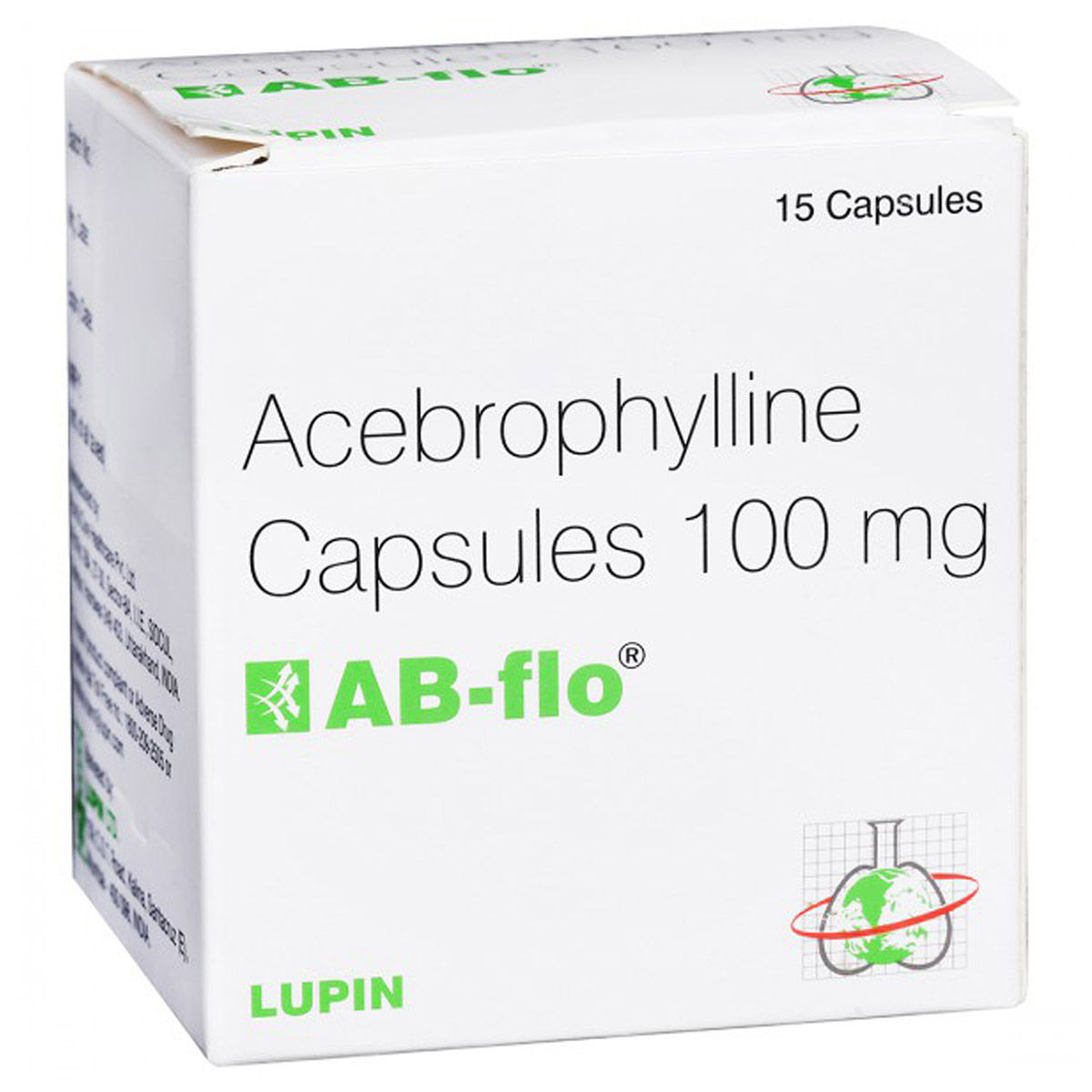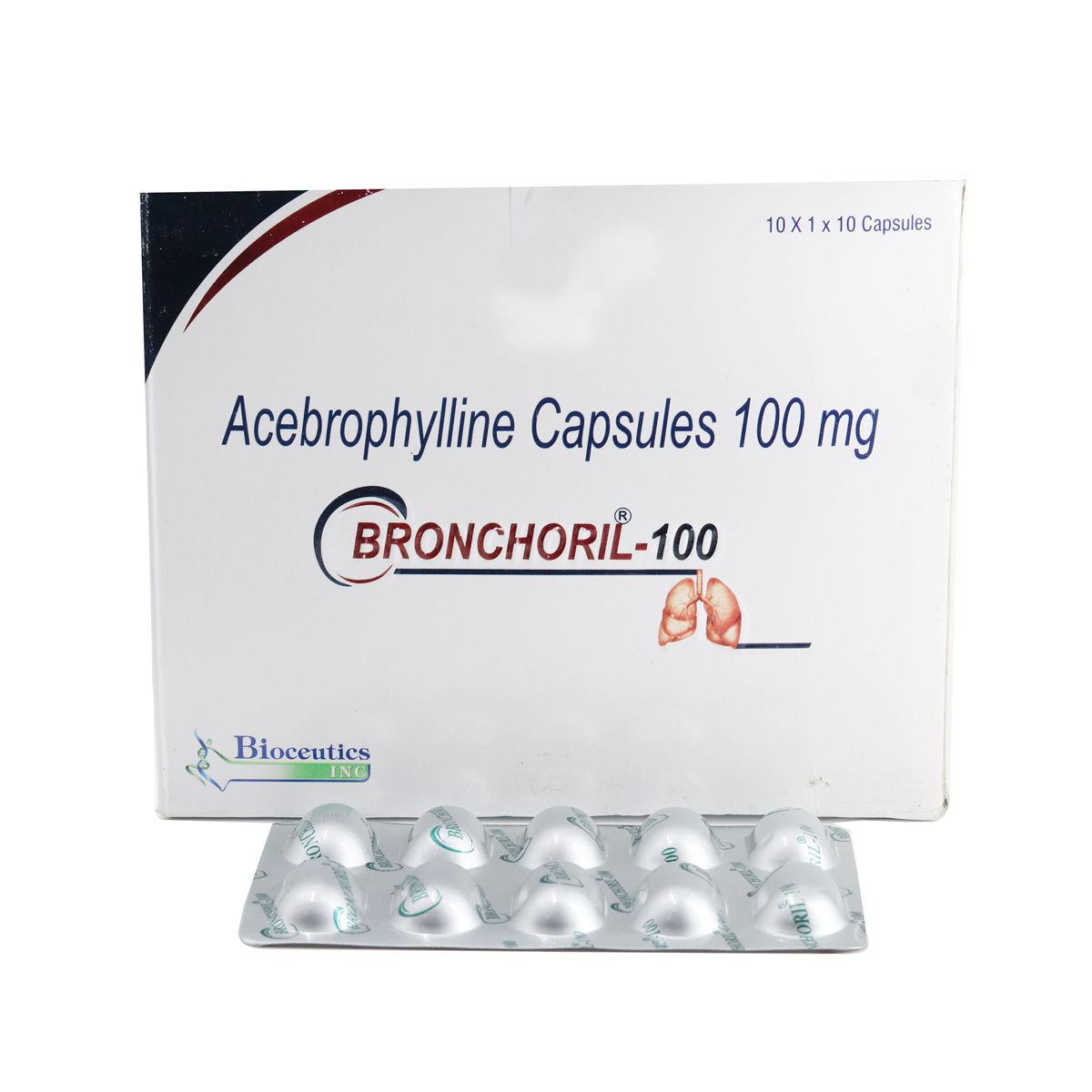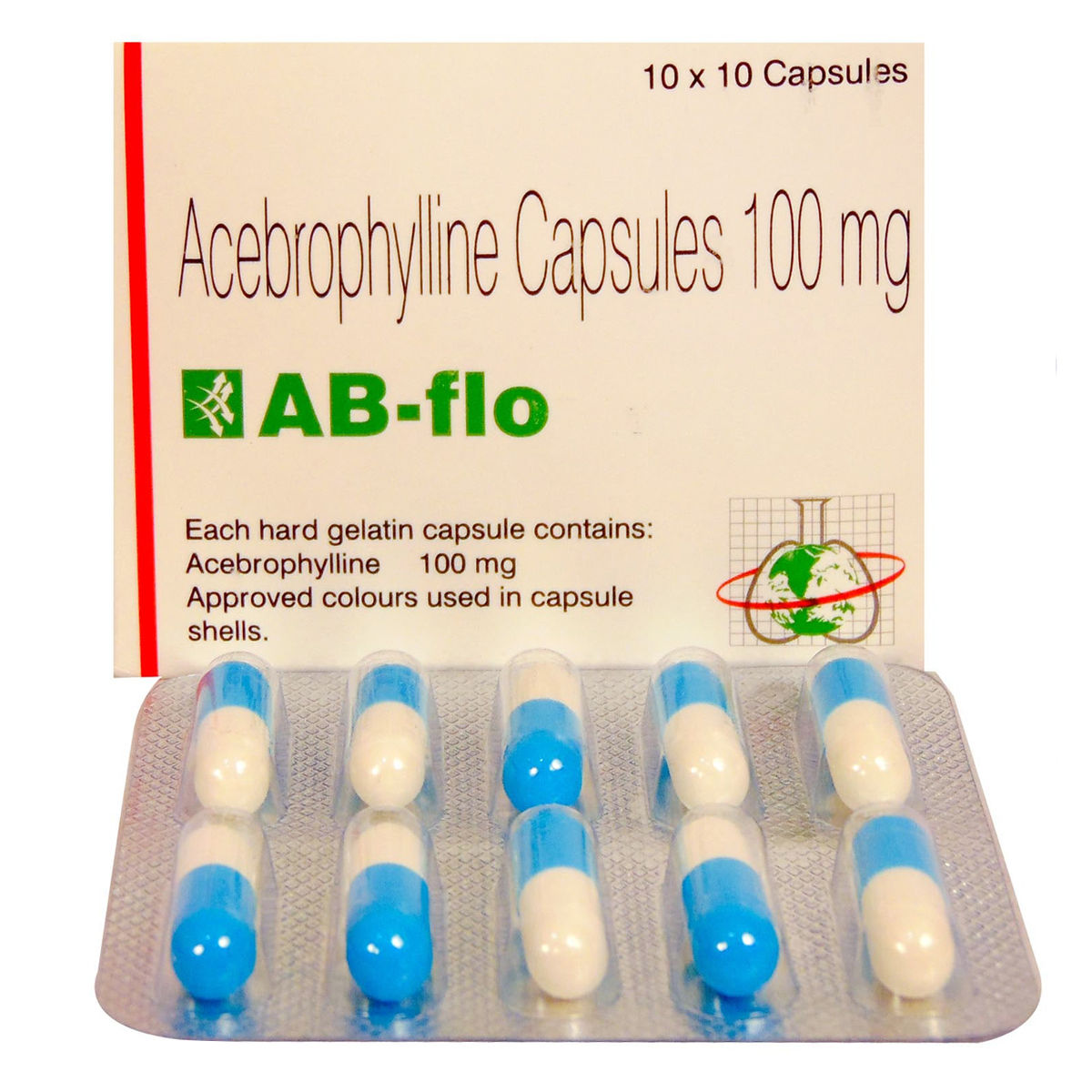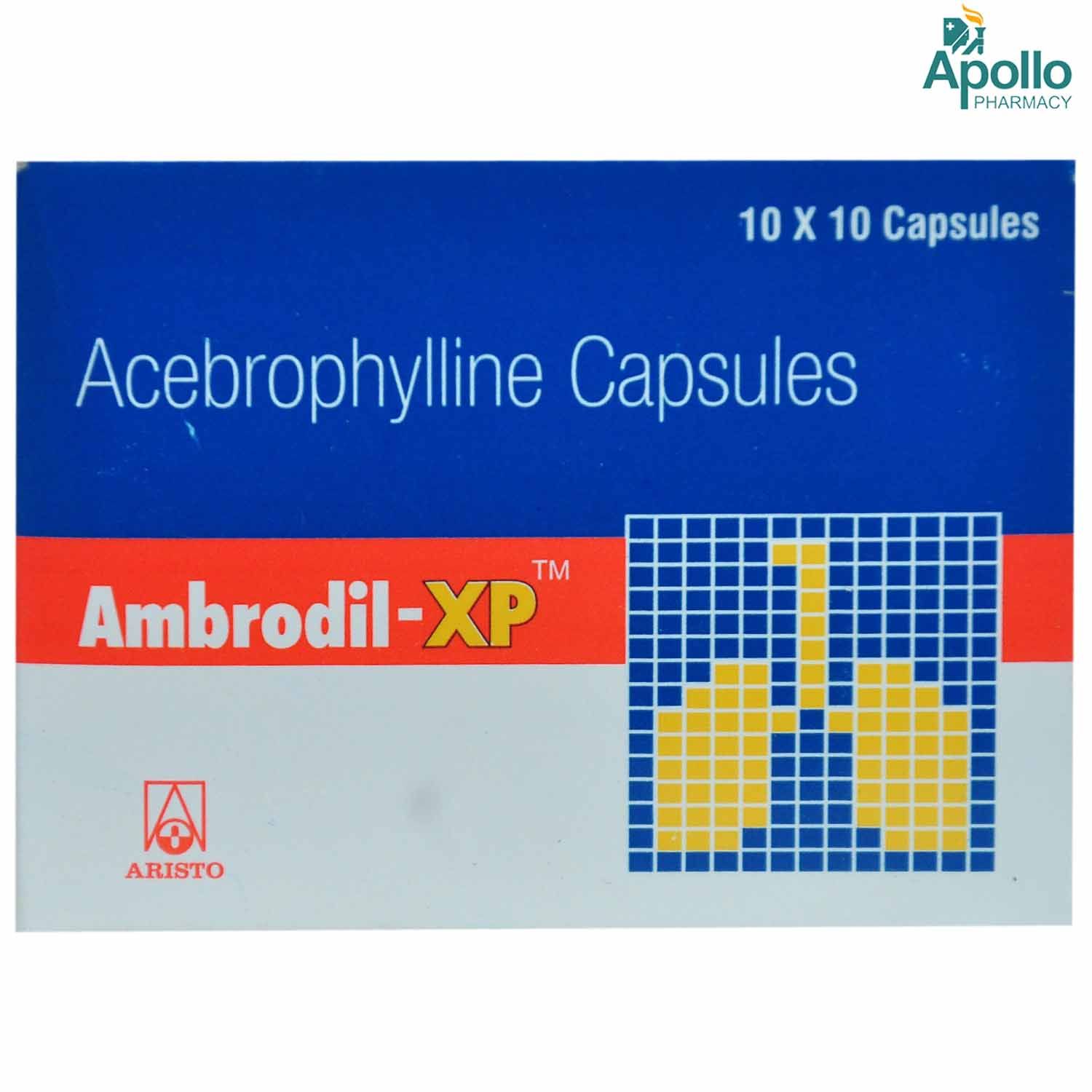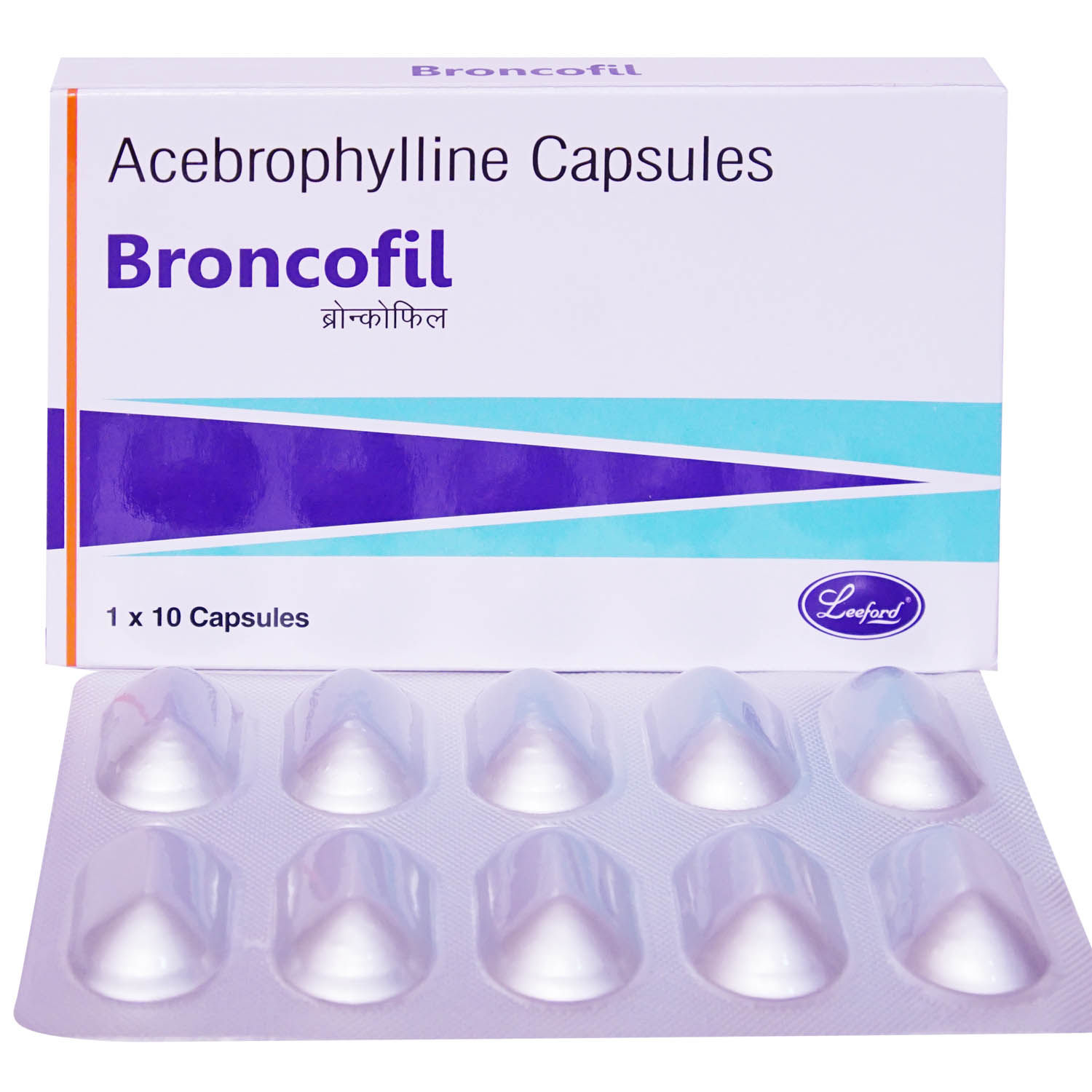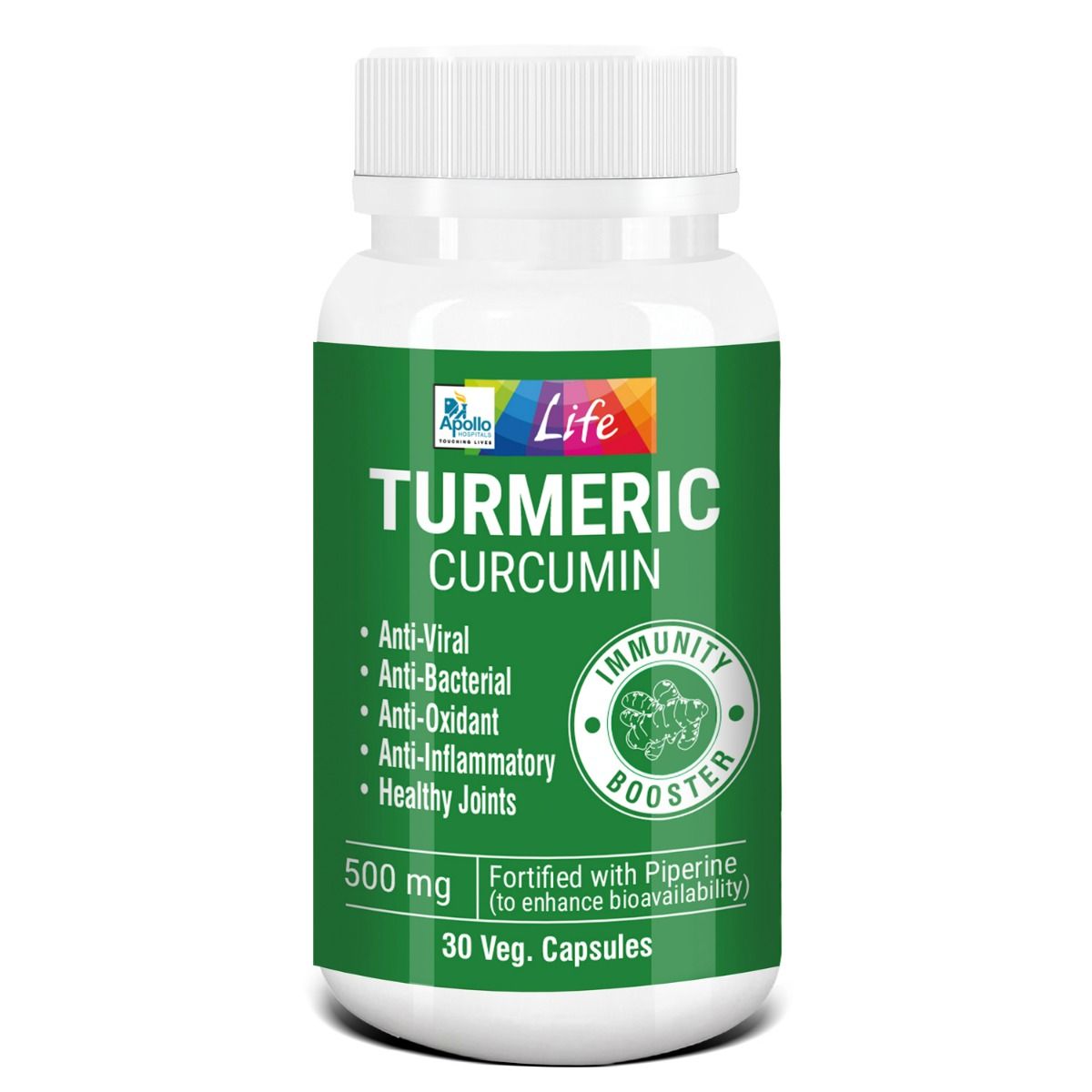Macphylline Capsule 10's
₹113*
MRP ₹125.5
10% off
₹106.67*
MRP ₹125.5
15% CB
₹18.83 cashback(15%)
Free Delivery
With Circle membership
(Inclusive of all Taxes)
This offer price is valid on orders above ₹800. Apply coupon PHARMA10/PHARMA18 (excluding restricted items)
Know Your Delivery Time
Provide Delivery Location


Available Offers
 Prescription drug
Prescription drugWhats That
 33 people bought
33 people bought 
Secure Payment

India's Most Trusted Pharmacy

Genuine Products
Composition :
Manufacturer/Marketer :
Consume Type :
Return Policy :
Expires on or after :
About Macphylline Capsule
Macphylline Capsule is used to prevent and treat symptoms of asthma and chronic obstructive pulmonary disease (COPD). Asthma is a chronic (long-term) respiratory condition in which airways narrow, swell, and produce extra mucus, leading to difficulty in breathing. COPD is a group of lung diseases with emphysema (shortness of breath) and chronic bronchitis (inflammation of the lining of bronchial tubes).
Macphylline Capsule contains Acebrophylline, which works by relaxing muscles and widening the airways of the lungs. Additionally, Macphylline Capsule also acts as a mucolytic (cough/sputum thinner) agent and helps in thinning and loosening phlegm (mucus) in the lungs, windpipe and nose. Therefore, it helps cough out easily and makes breathing easier by opening airways.
Take Macphylline Capsule as prescribed. Your doctor will recommend how often you take Macphylline Capsule based on your medical condition. Some people may experience diarrhoea, nausea, vomiting, dizziness, heartburn, stomach discomfort, skin rash or drowsiness. Most of these side effects of Macphylline Capsule do not require medical attention and gradually resolve over time. However, if the side effects persist or worsen, please consult your doctor.
If you are allergic to Macphylline Capsule or any other medicines, please tell your doctor. If your breathing worsens or you often wake up at night with asthma, experience chest tightness in the morning or last longer than usual, please consult a doctor immediately, as these might be signs indicating that your asthma is not controlled properly and requires an alternate or additional treatment. Regular monitoring of potassium levels is recommended while taking Macphylline Capsule as it may cause low potassium levels in the blood. If you are pregnant or breastfeeding, it is advised to inform your doctor before using Macphylline Capsule . Do not take Macphylline Capsule if you have a heart rhythm disorder that causes fast heartbeats. Avoid taking Macphylline Capsule if you have low blood pressure, irregular heartbeats, hemodynamic instability (unstable blood pressure), a heart attack, or kidney or liver diseases. If you have hyperthyroidism (overactive thyroid), irregular heartbeats, viral infections, heart failure, high blood pressure, fits, gastric or duodenal ulcers, heart diseases, kidney or liver insufficiency, inform your doctor before taking Macphylline Capsule .
Uses of Macphylline Capsule
Directions for Use
Medicinal Benefits
Macphylline Capsule is a bronchodilator and mucolytic (mucus thinner) agent that is used to treat symptoms of asthma and chronic obstructive pulmonary disease (COPD). Macphylline Capsule works by relaxing muscles and widening the airways of the lungs. Additionally, Macphylline Capsule helps in thinning and loosening phlegm (mucus) in the lungs, windpipe and nose. Therefore, it helps cough out easily and makes breathing easier by opening airways. Macphylline Capsule helps prevent an asthma attack and allows you to exercise freely if it is taken before exercise.
How Macphylline Capsule Works
Storage
Side Effects of Macphylline Capsule
Diarrhoea
Nausea
Vomiting
Dizziness
Heartburn
Stomach discomfort
Skin rash
Drowsiness
What if I have taken an overdose of Macphylline Capsule
Drug Warnings
If you are allergic to Macphylline Capsule or any other medicines, please tell your doctor. If your breathing worsens or you often wake up at night with asthma, experience chest tightness in the morning or lasts longer than usual, please consult a doctor immediately as these might be signs indicating that your asthma is not controlled properly and requires an alternate or additional treatment. Regular monitoring of potassium levels is recommended while taking Macphylline Capsule as it may cause low potassium levels in the blood. If you are pregnant or breastfeeding, it is advised to inform your doctor before using Macphylline Capsule . Do not take Macphylline Capsule if you have heart rhythm disorder that causes fast heartbeats. Avoid taking Macphylline Capsule if you have low blood pressure, irregular heartbeats, hemodynamic instability (unstable blood pressure), had a heart attack, kidney or liver diseases. If you have hyperthyroidism (overactive thyroid), irregular heartbeats, viral infections, heart failure, high blood pressure, fits, gastric or duodenal ulcers, heart diseases, kidney or liver insufficiency, inform your doctor before taking Macphylline Capsule .
Drug-Drug Interactions
Drug-Drug Interactions
Login/Sign Up
Drug-Food Interactions
Drug-Food Interactions
Login/Sign Up
Diet & Lifestyle Advise
Eat foods rich in potassium such as tomatoes, bananas, asparagus, oranges, potatoes, avocados, dark leafy greens and beetroots as potassium is important for lung function and a potassium deficiency may cause breathing problems.
Drink plenty of fluids every day to thin mucus which makes it easier to cough out.
Avoid foods such as cabbage, beans, garlic, onions, shrimp, pickled food, dried fruits, fried foods, carbonated drinks, wine, bottled lemon and lime juice as it may worsen asthma symptoms.
Exercise regularly to strengthen your breathing muscles and boost your immune system. Learning breathing exercises will help you move more air in and out of your lungs.
Do meditation, deep breathing, regular exercise and try progressive muscle relaxation techniques to get relief from stress and reduce the risk of an asthma attack.
Quit smoking as it may reduce the effectiveness of the Macphylline Capsule and irritate the lungs worsening breathing problem.
Habit Forming
Therapeutic Class
Macphylline Capsule Substitute

AB-Flo Capsule 15's
₹16.26per tabletBronchoril 100 mg Capsule 10's
by AYUR
₹10.80per tabletAB-Flo Capsule 10's
₹14.76per tabletAbevia-100 Capsule 10's
₹10.31per tabletAblung 100 mg Capsule 10's
by AYUR
₹10.17per tablet
Product Substitutes
Alcohol
Unsafe
Avoid consumption of alcohol with Macphylline Capsule as it may increase drowsiness. Please consult a doctor before consuming alcohol with Macphylline Capsule .
Pregnancy
Unsafe
Macphylline Capsule is not recommended for pregnant women. Please consult a doctor before using Macphylline Capsule if you are pregnant.
Breast Feeding
Caution
It is unknown whether Macphylline Capsule is excreted in human milk. Please consult a doctor before taking Macphylline Capsule if you are breastfeeding.
Driving
Safe
Macphylline Capsule usually does not affect your ability to drive or operate machinery.
Liver
Caution
Take Macphylline Capsule with caution, especially if you have a history of Liver diseases/conditions. The dose may be adjusted by your doctor as required.
Kidney
Caution
Take Macphylline Capsule with caution, especially if you have a history of Kidney diseases/conditions. The dose may be adjusted by your doctor as required.
Children
Caution
Macphylline Capsule should be used with caution in children in doses as prescribed by a doctor.
FAQs
Country of origin
Manufacturer/Marketer address
Customers Also Bought
Disclaimer
Author Details
We provide you with authentic, trustworthy and relevant information
Recommended for a 30-day course: 3 Strips






